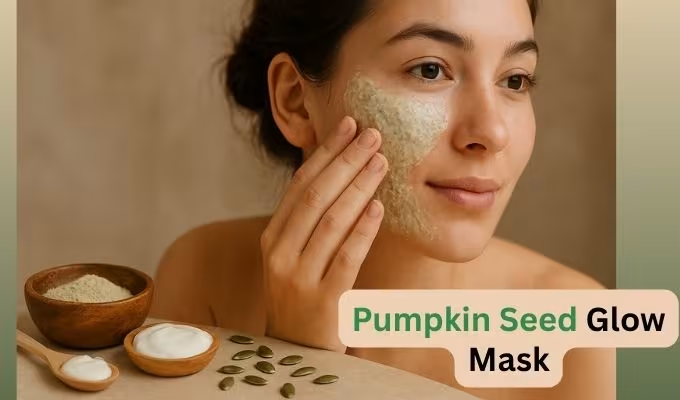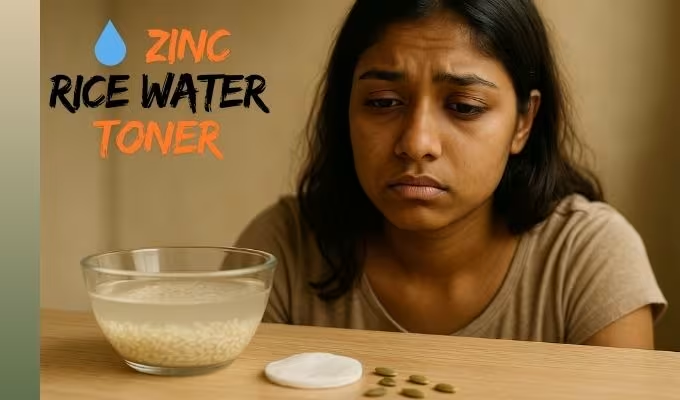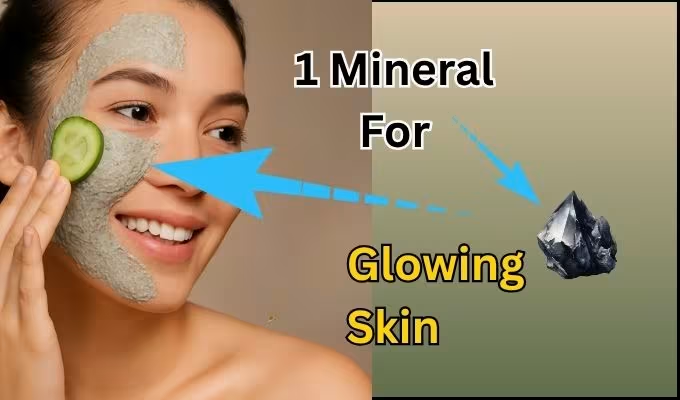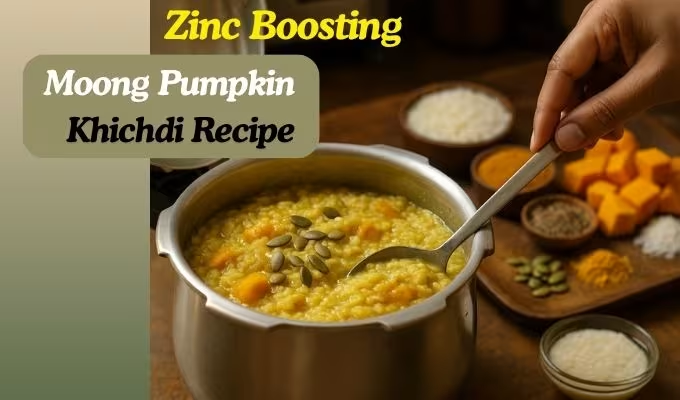Zinc for Skin
So many skin issues like dullness, breakout, irritation, come from one root cause — inflammation and imbalance.
Today, we will talk about one mineral that can help you fight this skin problem effectively.
Zinc: The Power Mineral for Skin
The power mineral is Zinc. It plays an important role in maintaining the health and integrity of the skin.
Zinc supports critical processes such as collagen synthesis, wound healing, and cellular repair.
It helps regulate inflammation, control the activities of oil glands, and protects the skin from oxidative stress caused by free radicals.
Even studies have found that Zinc is an important micronutrient required for the normal function of skin.
Zinc helps fight acne, soothe redness, and gives the skin a calm, clear glow.
Why Zinc Is Important for Your Skin
Zinc is like your skin repair manager. It controls oil production, which helps prevent clogged pores and acne.
It reduces inflammation, calms redness and irritation, speeds up healing, especially for scars and blemishes, and acts as a mild antioxidant, protecting skin from daily damage.
If your skin looks tired, spotty, or dull, Zinc may be what it needs.
Five Easy Zinc-Based Remedies
🥣 Pumpkin Seed Glow Mask
Pumpkin seeds are one of the richest plant-based sources of Zinc. This face mask helps your skin absorb the goodness of Zinc.
You will need:
- 1 tablespoon pumpkin seed powder
- 1 tablespoon yogurt
- ½ teaspoon honey

How to use: Mix well and apply as a cream mask for 15 minutes. Rinse with lukewarm water.
It gently exfoliates, hydrates, and clears up active, day-prone skin.
🌱 Aloe Zinc Spot Gel
Aloe vera soothes and heals, and natural Zinc Oxide dries out blemishes safely.
You will need:
- 1 teaspoon aloe vera gel
- A pinch of Zinc Oxide powder
- 1 drop tea tree oil
How to use: Mix into a gel and apply only on irritated spots or pimples. Use at night.
It’s a gentle but effective alternative to harsh spot creams.
💧 Zinc Rice Water Toner
For matured skin or enlarged pores, rice helps as it contains trace minerals including Zinc and calms the skin.
You will need:
- ½ cup uncooked rice
- 1 cup water

How to use: Soak rice in water for 2–3 hours, strain, and store in the fridge.
Use daily as a toner with a cotton pad. Great for calming and glowing skin.
🧼 Chickpea and Neem Detox Pack
Chickpea flour has natural Zinc and Neem is antibacterial, making this ideal for those struggling with acne.
You will need:
- 1 tablespoon Chickpea flour (besan)
- 1 teaspoon Neem powder or paste
- Rosewater to mix
[[ How to Keep Your Brain Young and Active Naturally ]]
How to use: Make a paste and apply as a mask once or twice a week. It clears up congested skin and reduces oiliness.
🥒 Zinc and Cucumber Cooling Serum
Zinc and Cucumber together are healing for sensitive or inflamed skin.
You will need:
- 1 tablespoon cucumber juice
- A pinch of natural Zinc powder
How to use: Mix and store in a small bottle. Apply under the eyes or on red areas.
It soothes and depuffs beautifully. Always patch test before trying new remedies.
Zinc-Boosting Moong Pumpkin Khichdi Recipe
To naturally increase your body’s Zinc level, try this comforting recipe.
You will need:
- ½ cup yellow moong dal
- ½ cup chopped pumpkin
- 1 tablespoon pumpkin seeds
- Rice, turmeric, cumin, salt
How to prepare: Cook moong dal and pumpkin with rice and spices until soft.
Add pumpkin seeds before serving.
This meal is warm, easy on digestion, and gives your body a great Zinc boost from both dal and seeds.
🌟 Final Words
Zinc is gentle but powerful. Whether applied or eaten, it helps skin stay calm, clear, and glowing.
For best results, use one or two Zinc-based remedies regularly.
[[ Why You Should Drink Raisin Water in the Morning ]]
Add Zinc-rich foods like lentils, seeds, and even a little dark chocolate to your diet.
Avoid over-cleansing. Zinc works best on nourished, not stripped, skin.
Take care of yourself, Glow from outside and inside.
FAQs About Zinc For Skin Health
Q1. How does Zinc help acne-prone skin?
Ans. Zinc helps control oil production, reduces inflammation, and dries out blemishes gently, making it ideal for acne-prone skin.
Q2. Can Zinc be used daily in a skincare routine?
Ans. Yes, Zinc-based remedies like toners or soothing serums can be used daily, but always do a patch test first.
Q3. Is it better to apply or eat Zinc for skin benefits?
Ans. Both are beneficial. Topical Zinc soothes and heals, while dietary Zinc supports overall skin health from within.
Q4. Are natural sources of Zinc effective for skin?
Ans. Absolutely. Pumpkin seeds, chickpea flour, and rice contain Zinc and offer gentle, effective skin nourishment.
Q5. What are signs that my skin needs more Zinc?
Ans. If your skin is dull, red, irritated, or prone to breakouts and slow healing, it might benefit from added Zinc support.


